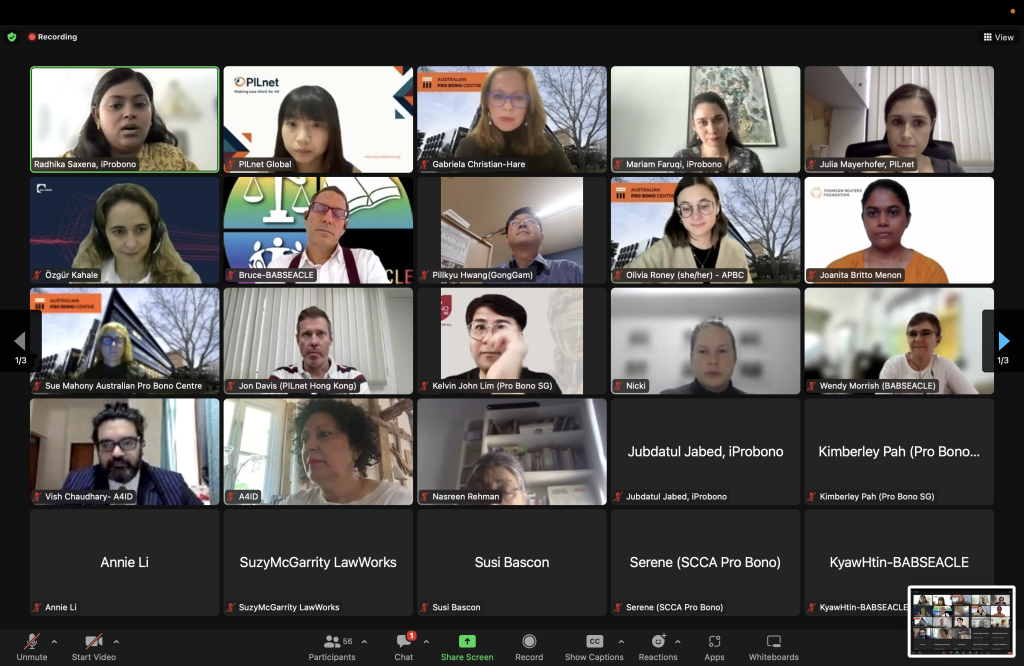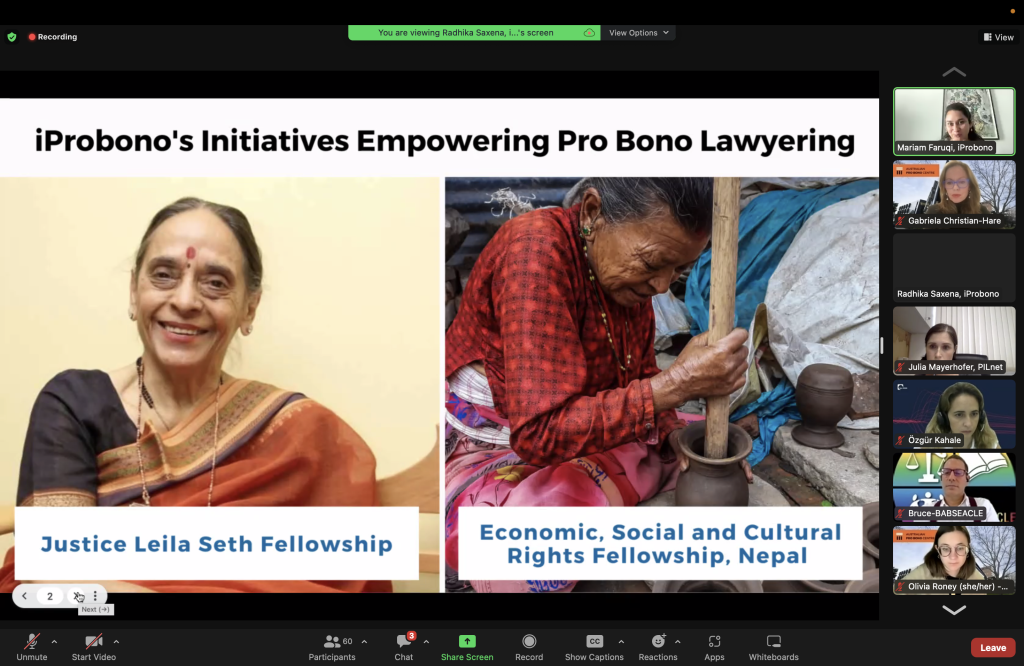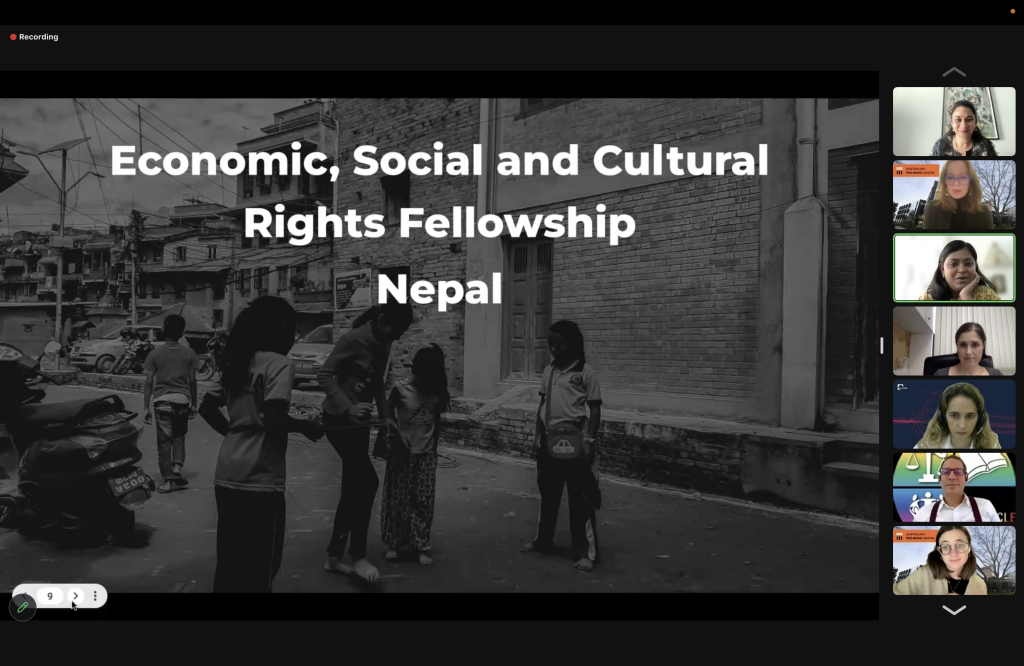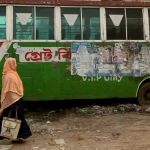iProbono, along with the Australian Pro Bono Centre and PILnet, organised the second quarterly roundtable on ‘Empowering Pro Bono: Global Empowerment Initiatives’ held by the Asia Pro Bono Consortium on Thursday, 15 June 2023. Through this event, the three organisations highlighted initiatives that strengthen and promote pro bono culture globally. More than 55 people joined the discussion, representing different countries, civil society organisations, charities and non-profit organisations, and legal professionals.

The Roundtable Discussion
The session was moderated by Radhika Saxena, Program Manager for South Asia at iProbono. The first half of the session consisted of presentations by PILnet, iProbono, and the Australian Pro Bono Centre.
Julia Mayerhofer, Co-Executive Director at PILnet, presented on their pilot project to increase access to legal assistance for refugees and others forcibly displaced around the globe. She shared PILnet’s vision to build a sustainable pro bono culture by collaborating with local law firms and lawyers.
Mariam Faruqi, Managing Director at iProbono and Radhika Saxena shared their experiences conceptualising and implementing two flagship fellowship programs in very different contexts: The Justice Leila Seth Fellowship in India and the Economic, Social, and Cultural Rights Fellowship in Nepal.


Lastly, Gabriela Christian-Hare, the CEO of the Australian Pro Bono Centre, and Özgür Kahale, Pro Bono Director for Europe at DLA Piper, shared their journey of designing and launching the Global Pro Bono Hub, an international platform for pro bono resources, news, events and jobs, facilitating an exchange of knowledge, expertise, and updates across the global legal pro bono community.
How the Asia Pro Bono Quarterly Roundtables Promote Pro Bono Culture
Presenters and participants unequivocally agreed that arranging similar roundtables is a necessity in order to facilitate participation from the diverse pro bono community, efficiently respond to challenges, understand innovative and best practices in the social justice sector, and reinforce a collaborative pro bono culture.
The roundtable session also consisted of a breakout session and feedback segment, which encouraged interaction between organisations and stakeholders on the initiatives being implemented by each of the presenters.
Not only did this spread awareness about the variety of pro bono initiatives undertaken globally, it also helped connect individuals and organisations working towards a common goal. As experiences and stories were shared, participants realised the common nature of challenges and obstacles faced while working in the pro bono sector. This opened up a space to collaborate to overcome difficulties and help build a resource pool.
The presentations also aided consortium members and presenters to identify the areas where organisations require assistance. Through the breakout session, participants better understood the initiatives led by the presenting organisations, and their valuable feedback became key in locating improvements and changes that can be implemented to strengthen and promote the projects and meet the required needs of the global pro bono community.
Roundtables like this re-emphasise the need to bring together the various pro bono actors and the value of learning and sharing.
Learnings and Takeaways for iProbono
iProbono learned a great deal from participants running similar initiatives across Asia. The breakout sessions brought out shared issues such as the retention of fellows, rooting the fellows in the communities they work with, the possibility to work across fellowships and organisations in Asia, and opportunities for international exposure. We also discussed the sustainability of these fellowships and engagement with prior fellows. These ideas will be key to the further development of our programming for the two fellowships.
Join us for the next round table in August/September 2023!







